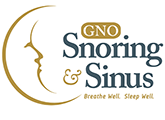Nasal Congestion
Allergic rhinitis can cause intermittent nasal congestion and significant impairment with nasal breathing, resulting in a decreased quality of life and even mild forms of sleep apnea. Patients with allergic rhinitis experience an immune response mediated by immunoglobulins, namely IgE. Most patients we see have tried multiple medications including antihistamines, nasal sprays, immunotherapy, and still have not achieved relief of their allergic rhinitis. The culprit is inflammation of the nasal mucosa from allergy that leads to congestion of the inferior turbinates – causing blockage of nasal airflow.
Patients suffering from this have increased sneezing, a congested sound to their voice, and a runny nose.


The recovery time after an inferior turbinate reduction is short. Patients can expect some nasal congestion due to swelling. After 1 week, patients return to the office for their post-operative visit. No packing is used during this procedure.
If you would like to learn more about inferior turbinate reduction, feel free to contact us for further assessment and treatment.
